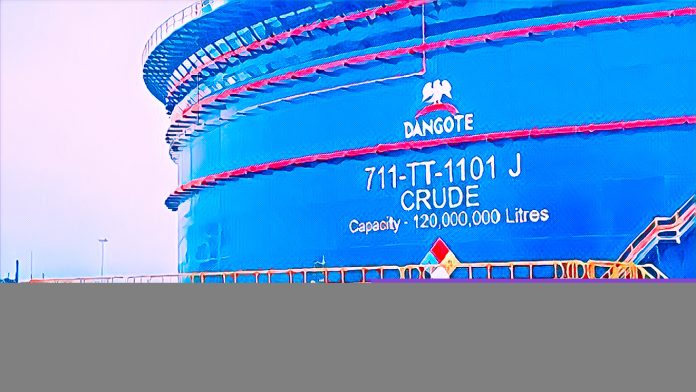KEY POINTS
- Dangote Refinery says naira-for-crude initiative falls short of needs.
- NNPC promised 385,000 bpd but delivers less, says Dangote VP.
- Only Dangote Refinery has benefited; other refineries lack access.
According to Edwin Devakumar, vice president of Dangote Industries Limited, the federal government’s naira-for-crude-oil scheme is failing to meet the Dangote Refinery’s supply needs.
Dangote Refinery demands 650,000 bpd; NNPC delivers less
Devakumar told Reuters on Friday that the refinery is unable to run at its best because the Nigerian National Petroleum Company (NNPC) Limited has had trouble delivering the agreed-upon amounts of crude oil under the agreement.
Every day, we require 650,000 barrels. According to Devakumar, “NNPC Limited, the state oil company, agreed to provide at least 385,000 barrels per day, but they are not even delivering that.”
He referred to the amount of crude that NNPC supplied under the program as “peanuts,” pointing out that there were large shortages that made the refinery dependent on imported petroleum.
As part of a larger plan to encourage domestic refining, the federal government implemented the naira-for-crude sales policy on October 1, which mandates that refineries buy crude oil in the local currency.
Devakumar stated that even though the Dangote Refinery has received four cargoes of oil under the program, the facility still needs to explore overseas for further supplies to meet its demand.
The interim executive director of the Crude Oil Refinery-owners Association of Nigeria (CORAN), Mathins Obaze, responded to the criticism by admitting that the naira-for-crude agreement has not been implemented consistently.
According to Obaze, other refineries are unable to obtain crude in naira because Dangote Refinery is the sole facility that has profited from the approach thus far.
Obaze emphasised the difficulties encountered by the nation’s seven remaining functioning refineries by saying, “Members are still unable to access crude in naira and are currently engaging the government for a resolution.”
Government policy aims to boost refining but faces criticism
With a daily capacity of 650,000 barrels, the Dangote Refinery is seen as a key component of Nigeria’s endeavor to increase domestic refining and lessen reliance on imported fuels.
According to businessday, the potential of the naira-for-crude concept, however, may be compromised by its implementation challenges.
Despite the government’s best efforts, the facility’s capacity to concentrate only on local supplies is being hampered by insufficient domestic crude allocations.
This breakthrough coincides with Nigeria’s efforts to increase domestic refining capabilities in order to lower gasoline imports, conserve foreign cash, and generate employment. The naira-for-crude initiative’s current execution raises concerns about its viability and sustainability for the Dangote Refinery and other operators, even though its success is anticipated to be crucial in accomplishing these objectives.



